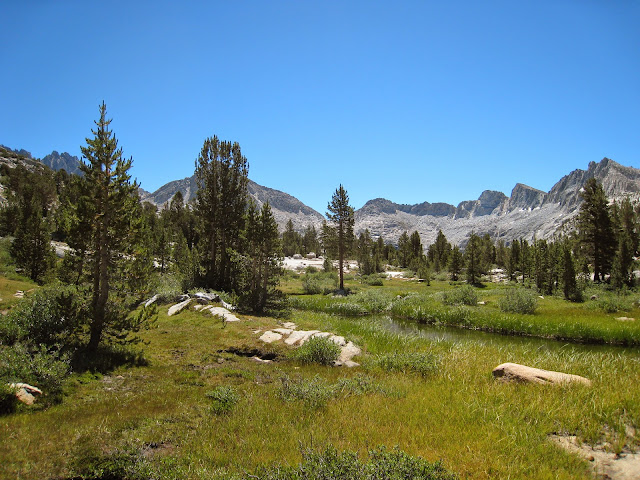This year I have adopted a slightly different approach given that it is hard to recall the pre-pandemic period; time has felt both stretched and condensed making perspective harder; films seen in the cinema will always be a different experience to films seen at home; and films seen in sparsely attended secure screenings, whilst a precious opportunity, inevitably feel a little peculiar.
Accordingly, I have one clear winner (seen pre-pandemic in the cinema) and then two groups of eight films seen under widely differing circumstances which seem worthy of note. Groups of eight because I had 16 films on the list but why films are in group one or group two is simply chance although it will be apparent that there are some types of film that I really do like (such as American indies directed by women!) and that this year I think lockdown has actually led to more smaller scale films being made available to wider audiences via early streaming.
It also strikes me that whilst I watched a lot of films and that this list is solely about films which can plausibly be said to have been released in 2020 I see a concentration in my watching of newer films on domestic and social dramas. There is not a single large budget or action film and nothing truly experimental. Just well told stories which were absorbing and with characters which had resonance - at least for me. I think that is clearly the pandemic talking.
That said, the frequent punch the air moments in David Byrne's American Utopia were a sheer, joyous release which might even occasion dancing around the lounge.
The Winner : Parasite
So, do we now all have to signal our obeisance to Director Bong? I rather think we do. This film is a deserving recipient of all the hype and expectation and exemplifies what South Korean cinema currently seems to do better than anywhere else in the filmic world: slip and slide between genres within a scene and engage in systematic deconstruction of the pernicious effects of rampant social and economic inequality.
Everyone (rightly) says go in knowing as little as possible. You'll come out having had a kind of cabin in the woods experience which somersaults between satire, farce, horror and thriller. Truly a staircase movie: this one climbs up and down from the basement but it turns out that sunshine, and indeed showers (although that might be a considerable understatement) are hardly cleansers for the lower depths.
Group One:
The Assistant : All the more troubling for being such a quiet, forensic account of small increments in moral corruption and the unspoken adjustments and that are made to accommodate exploitation by, and the egregious misbehaviour of, the unaccountable. [VOD]
Never Rarely Sometimes Always : Astoundingly assured show don't tell film making which is completely gripping from beginning to end. [VOD]
Saint Frances : Absolute catnip for me. Intelligent, amusing, low key, character driven, great script raising some serious with a light touch and delivering some profound moments of truth. A world that you were very happy to visit and to which you would happily come back (and indeed it is arriving on Netflix at the end of the year...) [VOD]
Kajillionaire : Surprisingly sweet tale, delivered through a weird but diverting satire on small time capitalist ethics as a lifestyle sustained precariously by (often ill conceived) scams and contrivances to exploit others, which reaffirms the ultimate universal need for connection and affection, to be understood and to be appreciated. Anyone whose heart has not hardened into granite will surely be smiling and wiping a moist eye by the end. [LFF Home Screening]
Mogul Mowgli : Boldly conceived and executed and brilliantly performed. There is a wonderful allegory in the idea of an auto-immune disease in which some cells are not recognised by the body and are attacked as foreign and the experience of a second generation immigrant struggling to balance a career in rap (in which he can also feel an imposter) with family and community pressure and expectations. The culminating sequence in which these conflicts are at least to some extent reconciled is fabulous. [Cinema - secure screening]
Lover's Rock : Quite extraordinary in the evocation of a particular experience. The truly remarkable thing is that somehow the experience that is apparently being recreated to be filmed is in fact actually happening. So the cameras are there but the participants are not performing for them any longer. They are completely in the moment and doing it for themselves. [on the BBC!]
Shirley : At one point, the ballad ‘House Carpenter' about an innocent lured to disaster is sung and there is indeed something demonic in the eccentric, vicious but preternaturally gifted writer and her weird co-dependent relationships that simultaneously hobble and empower.
It's an absorbing watch with some of the trademark Decker flourishes of off kilter framing, strange depth of field and rapid movement at the very front or side all of which disorientate. This all helps develop the unsettling environment into which the viewer is plunged.
I've found myself increasingly liking her films. Madeline's Madeline certainly divided people but it really worked for me. Shirely is more conventional but retains enough oddity to make it striking. It hardly needs saying that Elisabeth Moss is very good in it but the world that spins around her is a bigger creation which is down to a very fine script and some excellent direction. [LFF Home Screening]
Mank : A cynical idealist who surrenders agency is at risk of ending up a sad, world weary, alcoholic who still knows exactly what is going on, can critique it to within an inch of its life, alienate the powerful with stiletto stabs and be a man of compassion and principle to the few - frequently the marginalised and misunderstood - who are allowed to see below the carapace.
I rather loved this film, particularly the scenes between Mank and Marion Davies in which two intelligent people have a few moments in which they can play against type.
The film as a whole is deeply sad in the steady cataloguing of gradual alienation from the world and a quickening cycle of self destruction arising from the toxic mix of principle and despair. [Netflix]
Group Two
Little Women : (my verbatim review at the time) So, did it deserve the hype? On the whole, I think it did (and I say that as someone who is probably quite some way from the target audience, has never read the book and has a problem with saccharine drama).
It is clearly a very personal project for Greta Gerwig: she's developed a complex but immediately understandable structure which moves back and forth between time periods to address hopes and reality, causes and consequences and above all good and bad choices.
It is a surprisingly powerful account of being female in a patriarchal society and is very on point about economic power (and the lack of it).
It also zips by and has some wonderful performances: Florence Pugh is astoundingly good as is Saoirse Ronan. Given that Gerwig has chosen three of the most annoying leading men on the planet: (Saint) Timothee, James Norton and Louis Garrel it is surprising that I didn't feel the need to flee the cinema. Norton plays true to form as an emotionally stunted tree trunk but Garrel is much less irritating than usual. I just don't get the whole Timothee thing but in any case he comes across as a bit of an arse. Definitely not worthy of Flo or Saoirse.
Anyway, the most powerful aspect of the whole approach is that there is a slight meta commentary on whether this is an adaptation of the novel or about the development of a novel to meet 19th century social and cultural requirements to sell books. Whilst this is mostly playfully done, it works really well because it underscores the fundamental point that economic circumstances limit choices and agency - particularly for these women. [Cinema - pre-pandemic]
The Truth : (Watched at the very start of lockdown) This was pure pleasure. It's very funny in a droll, understated manner and also more moving than I expected. Clearly, it's set in an almost hermetically sealed upper bourgeois society into which the rest of the world barely intrudes and the major life choices are ones that don't trouble much of the population.
I have not always been convinced by the director: I loved some of his early films but found others too saccharine and rather unconvincing (I even left the cinema rather than sit through My Little Sister). But this one really works and I did not detect any of the blemishes associated with a director working in French without a working knowledge of the language which have been the focus of some reviews. In fact, many of the most important moments are non-verbal.
I suspect that the current situation and a couple of glasses of wine helped snuggle me happily into a very comfortable milieu in which you have complete confidence in the actors and the focus is on family relationships which, however difficult, feel remarkably tractable compared to a pandemic. It may also have been that just at this moment if you have to be in lock down, being in a big posh house in Paris seems a decent option. [VOD]
Rocks : Vibrant, engaging, empathetic account of the lives of a diverse group of young Londoners with some knockout performances. [Netflix]
Wildfire : Deeply affecting drama set on the Irish border about two sisters’ shared psychosis and the communal and individual effects of unresolved trauma. The sequence of wild dancing to the iconic ‘Gloria’ encapsulates both the bond and the sense of desperation. The film is a timely reminder that those who ignore the past are prone to make the same mistakes; something the current UK ‘government’ seems unable or unwilling to acknowledge. [LFF Home Screening]
Rose: A Love Story : A rather wonderful chamber piece about selfless love, commitment and living with a chronic condition which, as with all the best horror inflected films, grounds a heightened scenario in empathetic characters and recognisable emotions. [LFF Home Screening]
Ammonite : Subtle examination of the intersection between class, gender and sexual orientation played out through self worth arising from work, desire and romantic love. For some, grafting always has to come before swooning; others can simply swoon. The final sequence provides a wonderful summary of the whole film. Excellent performances and a suitably gnarly, close up, focus on lived experience in all respects from rotten eggs and mud to sexual ecstasy.
The film may suffer from over anticipation that it is a period romance. It is but it is perhaps more a genuine attempt to look at a life in a small town in the first half of the 19th century when your opportunities are narrow, life is hard and joy seems unlikely to come from others. [LFF Cinema - Secure Screening]
The Woman Who Ran : Or perhaps: 'The woman who mused about running, checked out how some other women are doing, observed the general uselessness, self-regard and antagonism of men, wanted to eat some real meat but kept on being offered a peeled apple, saw water flowing back and forth around sandbanks on a cinema screen, decided that those eddies were indeed her life, and may still be sitting there with the film on a permanent loop'. [VOD]
American Utopia : The best concert film since ... Stop Making Sense. Brilliant performances and choreography coupled with powerful messages about plurality of thought, change and agency that put a smile on your face, a spring in your step and hope in your heart. [VOD].





































